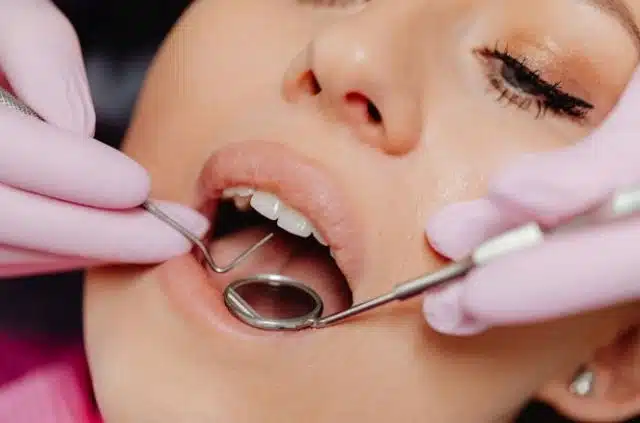Maintaining teeth health as an adult can be challenging, especially when balancing everyday expenses with long-term oral care needs. Many people postpone dental care due to cost concerns, but neglect can lead to more expensive problems down the road.
Fortunately, there are practical strategies to manage costs while preserving your smile. Preventive care, smart insurance use, and flexible treatment options can all play a part. Even with a limited budget, adults can take steps to protect their teeth and gums for years to come. With the right approach, dental care doesn’t have to be financially out of reach.
Prioritize Preventative Care
Keeping up with preventive dental care can spare you from painful and expensive procedures later on. Simple steps like regular cleanings, daily brushing and flossing, and avoiding tobacco make a significant difference. Many adults don’t realize that gum disease is a leading cause of tooth loss. In fact, adults over 35 lose more teeth to gum diseases (periodontal disease) than from cavities. Addressing issues early can help you avoid the need for crowns, root canals, or extractions.
If you don’t have dental insurance, consider low-cost clinics, dental schools, or discount dental plans that offer routine services at reduced rates. Some community health centers also provide sliding scale fees based on income. It’s also helpful to set aside a small monthly amount in a savings account or dedicated fund for dental expenses. Preventive care not only protects your teeth—it supports your overall well-being by reducing your risk for infections, inflammation, and related medical conditions.
Explore Orthodontic Options
Orthodontic treatment isn’t just for teenagers—many adults seek straighter teeth for both health and cosmetic reasons. Modern solutions like clear aligners are more accessible and discreet than traditional braces. The concept behind these aligners isn’t new; according to Ormco, the idea behind clear aligners like Invisalign was conceived in 1997. Since then, these systems have become widely available and increasingly affordable through payment plans and insurance.
Straightening your teeth can improve your bite, make cleaning easier, and boost your confidence. Talk to a dentist or orthodontist about options that suit your budget and lifestyle. Many providers offer free consultations, allowing you to compare treatment plans, ask questions, and better understand your financial options before committing.
Plan Finances Around Dental Care
Even when funds are tight, it’s possible to prioritize dental health by building care into your financial plans. If you’re facing significant dental costs and managing debt, restructuring your budget may be necessary. Chapter 13 bankruptcy is the process of consolidating your debt and proposing a repayment plan, which typically spans between 3–5 years. For some individuals, this process provides enough breathing room to handle necessary medical or dental expenses without falling deeper into financial trouble.
Additionally, many dental offices offer in-house financing or third-party credit solutions that break up payments into manageable monthly installments. You can also explore health savings accounts (HSAs) or flexible spending accounts (FSAs) through your employer to set aside pre-tax dollars for dental needs. These options help reduce out-of-pocket costs and create a financial cushion for unexpected procedures.
Caring for your teeth as an adult doesn’t require a large bank account—it requires a thoughtful, consistent approach. From preventing gum disease to exploring modern orthodontics and adjusting your financial strategy, there are many paths to both oral care and affordability.
Prioritizing dental care today can reduce future costs and contribute to your overall well-being. Even small efforts can yield long-term results. With the right resources and a proactive mindset, you can maintain a healthy smile without putting your finances at risk. Investing in your dental care is an investment in your quality of life.



